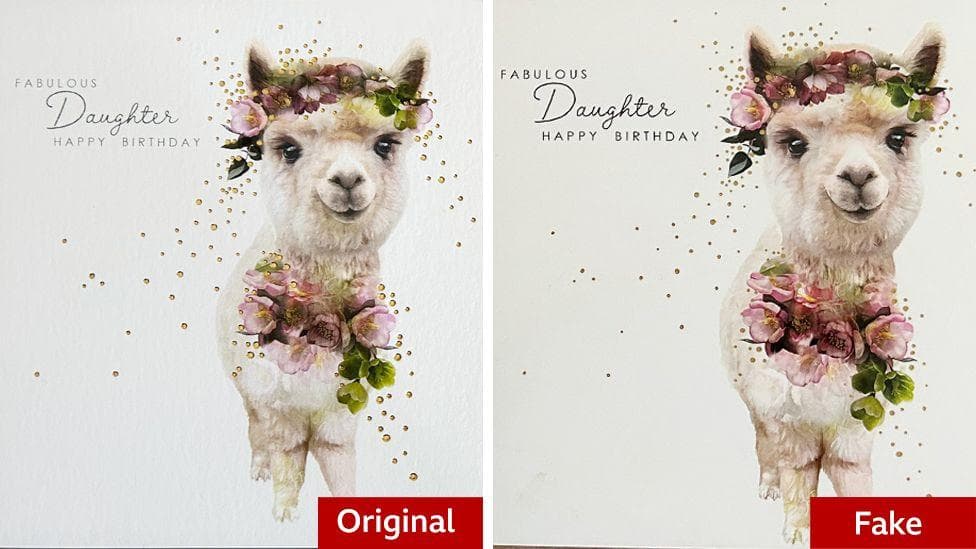We're loading the full news article for you. This includes the article content, images, author information, and related articles.
Online retail giant Temu has committed to a swifter process for removing plagiarised greeting card designs, a move that could offer a glimmer of hope to Kenyan designers battling rampant intellectual property infringement on e-commerce platforms.

Online shopping platform Temu has agreed to collaborate with the greeting card industry to expedite the removal of copied designs from its website. This development follows widespread complaints from card firms, who reported that hundreds of their copyrighted images were being used to create cheap imitations, resulting in significant financial losses.
Designers described the previous takedown process as a frustrating 'whack-a-mole' game, with infringing products frequently reappearing within days of being removed. Temu has stated that protecting intellectual property (IP) is a "top priority" and is encouraging sellers to participate in a trial for a new takedown process specifically tailored for the greeting card industry.
The issue of intellectual property infringement on online marketplaces resonates deeply within Kenya's creative and manufacturing sectors. Kenyan designers and artists often face similar challenges, with their original works being illegally copied and sold, particularly on e-commerce platforms and social media.
Amanda Mountain, co-founder of York-based Lola Design, discovered that nearly all the designs she had meticulously built over a decade had been copied and advertised by other sellers on various products, including greeting cards and t-shirts. Her experience highlights the emotional and financial toll such infringement takes on creators.
In Kenya, the Copyright Act, 2001 (revised in 2019), governs copyright protection, automatically granting rights upon the creation of an original work. However, enforcing these rights, especially against online infringers, remains a significant challenge. The Kenya Copyright Board (KECOBO) is mandated to administer and enforce copyright and related rights, offering services like registration, legal advice, and dispute mediation.
Despite these legal frameworks, the proliferation of counterfeit goods, often distributed through online platforms, continues to be a major concern. A 2025 report indicated that 53% of Kenyan firms reported an increase in counterfeit incidences over the past year, attributing it to consumer demand for cheaper products, inadequate enforcement, and economic downturns.
Kenya's government, through agencies like KECOBO and the Anti-Counterfeit Agency (ACA), has been working to combat counterfeiting. The Anti-Counterfeit Act provides for the seizure and destruction of counterfeit goods and imposes criminal sanctions.
There is also a Draft Copyright and Related Rights Bill 2025, which aims to introduce a clearer legal framework for the liability of online intermediaries and mechanisms for rights holders to take action, including blocking access to infringing online content.
Designers like Amanda Mountain have shared compelling testimonies of the direct impact of counterfeiting. Mountain noted the inferior quality of the copied products, with distorted images and poorer paper quality, underscoring the damage to brand reputation.
The economic implications of counterfeiting in Kenya are substantial. The Kenya Association of Manufacturers reported a 40% market share loss to counterfeit products, leading to revenue losses, brand damage, and operational disruptions, particularly for smaller firms.
The continued prevalence of intellectual property infringement poses several risks. It discourages innovation and creativity, undermines legitimate businesses, and leads to significant tax revenue losses for the government.
For consumers, counterfeit products often mean lower quality, potential health risks (especially in sectors like pharmaceuticals), and a lack of recourse when products fail.
The effectiveness of Temu's new takedown process will be closely watched by designers and intellectual property rights holders globally, including in Kenya. The ongoing efforts by KECOBO and the ACA, coupled with proposed legislative changes, will be crucial in shaping the future of intellectual property protection in Kenya's rapidly expanding digital economy.
Kenyan creatives and businesses are encouraged to register their copyrights with KECOBO to strengthen their legal standing in case of infringement.
Keep the conversation in one place—threads here stay linked to the story and in the forums.
Sign in to start a discussion
Start a conversation about this story and keep it linked here.
Other hot threads
E-sports and Gaming Community in Kenya
Active 9 months ago
The Role of Technology in Modern Agriculture (AgriTech)
Active 9 months ago
Popular Recreational Activities Across Counties
Active 9 months ago
Investing in Youth Sports Development Programs
Active 9 months ago